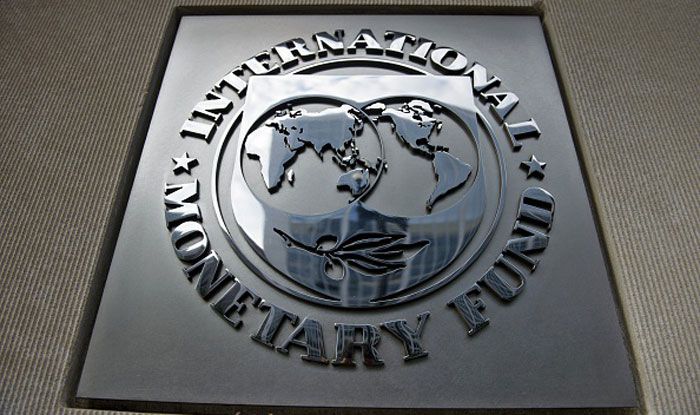

Washington: The primary draw back danger to India’s progress forecast is the continued unfold of the COVID-19 pandemic because the well being disaster has not but been contained, a prime IMF official mentioned on Tuesday, noting that the nation’s near-term progress outlook continues to be clouded by the worldwide and home slowdown and uncertainties regarding the coronavirus.
Lately, the Worldwide Financial Fund (IMF) in its report projected the Indian economic system to contract by -4.5 per cent in 2020, which is the slowest Indian progress that it has in its file since 1961.
“The primary draw back danger to India’s progress forecast is the continued unfold of the pandemic because the well being disaster has not but been contained. Additional outbreaks might require further lockdowns to comprise the pandemic. Issues in regards to the virus might additionally dampen client confidence and delay the financial restoration, Chang Yong Rhee, who's director of IMF’s Asia and Pacific Division, advised PTI in an interview.
The financial impression of COVID-19 has been substantial and broad-based. Excessive frequency indicators level to a pointy decline in financial exercise, as mirrored in industrial manufacturing, enterprise sentiment (eg, within the Buying Managers Indices), automobile gross sales, and commerce, he mentioned.
The downward revision to progress in FY20/21 is pushed primarily by the continued rise within the variety of COVID circumstances in India, he mentioned.
“This led us to make two particular changes. First, the assumed size of the partial lockdown was prolonged considerably, in keeping with the most recent authorities announcement. Second, and extra importantly, we made extra conservative assumptions in regards to the velocity of restoration on condition that the well being disaster has not but been contained regardless of the prolonged lockdown,” Rhee mentioned.
In accordance with him, the near-term progress outlook in India continues to be clouded by the worldwide and home slowdown and uncertainties regarding the evolution of the coronavirus pandemic.
Observing that the pandemic and the lockdown have a extreme impression on industries and providers (lodges, eating places and transportation sectors), he mentioned the GDP launch of 2020 Q1 (January to March), together with the start of the lockdown interval, factors to a decline in each manufacturing and development sectors in contrast with final 12 months and the earlier quarter.
Rhee mentioned that Indian authorities to date have offered substantial mixture coverage help by way of financial, monetary, and financial measures.
The numerous financial easing and liquidity help helped ease any sharp tightening of mixture liquidity circumstances, he added.
“With regards to fiscal coverage, the substantial credit-guarantees and associated schemes might play an essential position in forestalling an excellent sharper contraction in financial exercise, insofar as they're properly applied, focused, short-term, clear, and supply liquidity to corporations most in want, Rhee mentioned in response to a query.
That mentioned, there may be room for extra on-budget fiscal stimulus to bolster the pandemic response and restoration of the Indian economic system, significantly within the type of help for weak households. Additional fiscal help to weak SMEs can be a precedence.
Extra focused transfers to the poorer members of society are very important to sustaining some fundamental lifestyle whereas they're out of labor, and whereas acquiring even fundamental requirements is a problem, he mentioned.
Nevertheless, he noticed {that a} return to financial normalcy is past the scope of what will be achieved by financial stimulus alone – that is unlikely to be achieved till the specter of lack of life from COVID-19 has been eradicated.
When requested in regards to the impression of tensions between India and China, he mentioned that deepening commerce integration inside the area and globally would assist India’s funding, progress, and job creation agenda.
“Avoiding the escalation of commerce disputes is essential to avert the antagonistic impression on the Indian, regional and international economic system, particularly amid this present juncture of unprecedented uncertainty for the worldwide economic system, he mentioned.
Rhee mentioned that the precedence on the present juncture stays containing the pandemic and its impression on the Indian economic system.
Presently, India has the fourth highest confirmed circumstances of COVID-19 on the planet with over 5.66 lakh optimistic infections and over 16,000 deaths.
“The design of exit methods ought to take note of the evolution of the coronavirus pandemic and the potential impression on the well being care infrastructure,” he mentioned.
“Three particular challenges which can be mirrored in our up to date forecast for the economic system relate first, to containment of COVID-19 and the well being sector extra usually, second, to monetary sector vulnerabilities, and third, to India’s fiscal place over the medium time period, Rhee mentioned.
India’s fiscal place will deteriorate on account of the pandemic and the (applicable) deployment of sources to counteract the unfavorable well being and financial results of the virus and associated lockdown measures, he mentioned.
Greater spending as we speak must be focused, well timed, and short-term, and must be accompanied by a reputable and well-communicated medium-term consolidation plan, as soon as the virus is well-controlled, Rhee mentioned.
In accordance with him, a protracted slowdown might exacerbate the pre-pandemic monetary vulnerabilities.
The COVID shock has put additional stress on the strained monetary sector, which might additional delay the financial restoration, Rhee mentioned.

0 comments:
Post a Comment